Search
Search Results

Image
Three Kingdoms Period of China and the Rise of Xianbei in the year 229 CE
This map depicts the boundaries of all major civilizations in East Asia at the beginning of the Three Kingdoms Period of China, with italics indicating nomadic bands and other tribal societies. Following the collapse of Han Dynasty in 220...
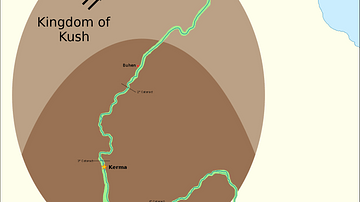
Image
Egypt in the Early Hyksos Period
Egypt and its political situation during the Second Intermediate Period (c. 1782 - c.1570 BCE), in which the Hyksos held power in the North and the Nubians held power to the South.
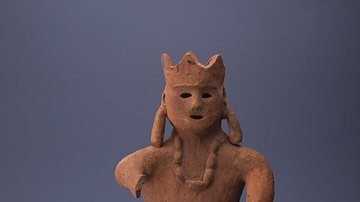
Image
Haniwa, Kofun Period
Terracotta Haniwa figure from Kofun Period Japan.
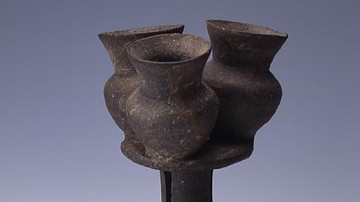
Image
Sueki Stoneware from the Kofun Period
Three jars on pedestal platform, made of high-fired stoneware with natural ash glaze, from early 6th century Kofun Period Japan.
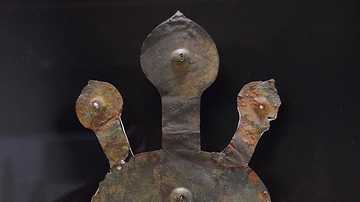
Image
Kofun Period, Gilt Bronze Crown
A gilt bronze crown. Nihon Matsuyama tumulus, Eiheiji-cho, Yoshida-gun, Fukui, Japan. Kofun Period, 5th century CE. (Tokyo National Museum)
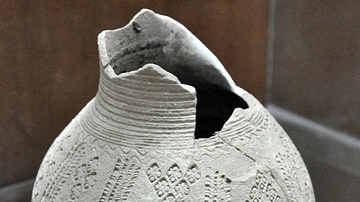
Image
Pottery Jar from Hellenistic period
This partially broken jar dates back to the Hellenistic period, 323-30 BCE. From Mesopotamia, Iraq. (The Sulaimaniya Museum, Iraq).
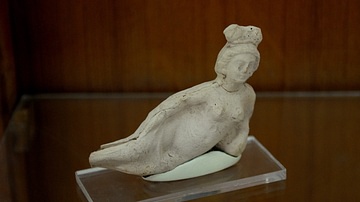
Image
Woman from the Hellenistic Period
This terracotta statuette depicts a woman. The woman is recumbent and is naked and wears an elaborate headdress. She looks forward, as if she is talking to someone or looking at something. From Mesopotamia, Iraq. The Hellenistic period, 334-139...
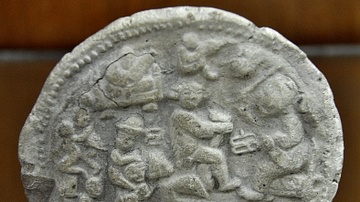
Image
Pottery Plaque from the Hellenistic Period
This round pottery plaque depicts various human daily activities. In the middle, a man and a woman are having sex, and on the left, a standing woman holds a young child on her shoulders. Hellenistic Period, 323-30 BCE. From Mesopotamia, modern-day...
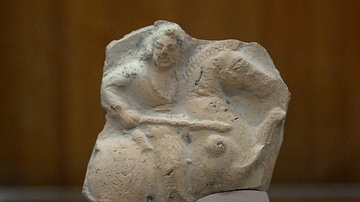
Image
Knight from the Hellenistic Period
This is a fragment of a terracotta plaque, which depicts a knight riding a horse. He holds a sword with his right arm. From Mesopotamia, Iraq. The Hellenistic period, 334-139 BCE. (The Sulaymaniayh Museum, Iraq)

Image
Map of the Fall of the Western Roman Empire, c. 480 CE
The disintegration of the Western Roman Empire unfolded gradually during the Migration Period (c. 400–800 CE), as waves of migrating and invading peoples reshaped Europe. After the death of Theodosius I (reign 379–395 CE), the last emperor...